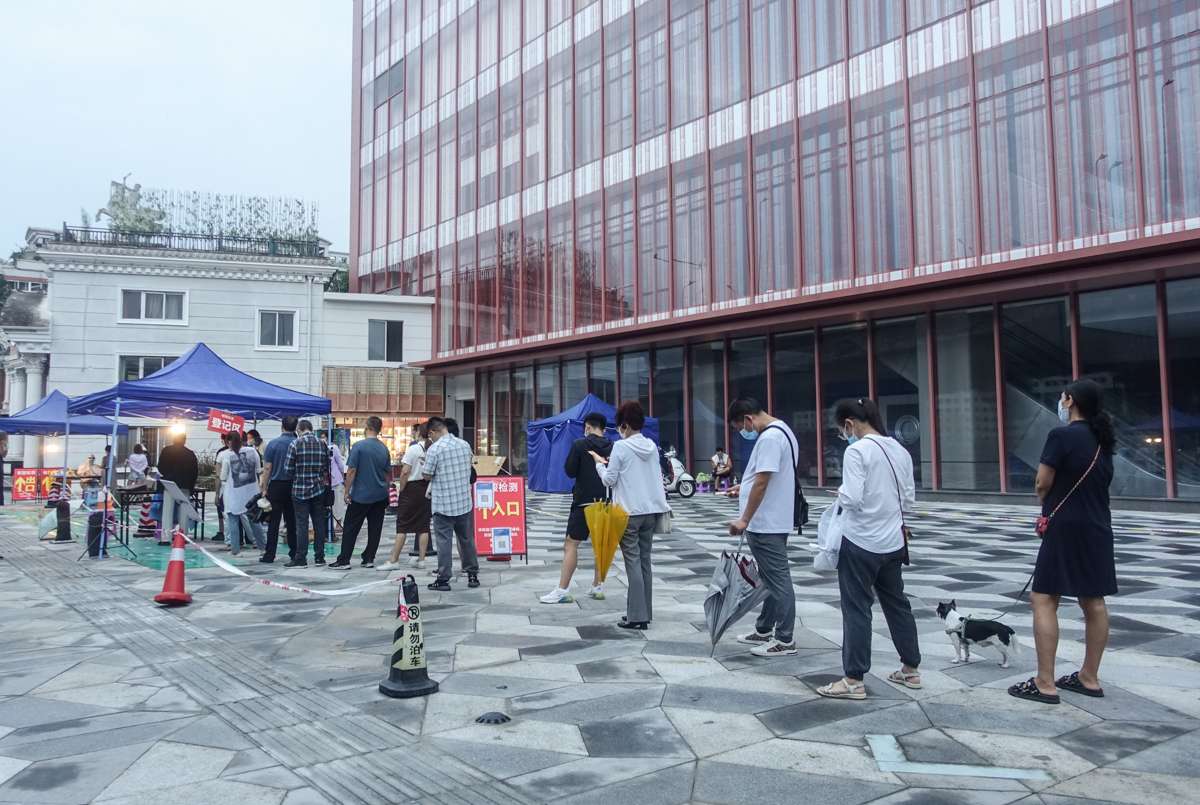The Chinese government reiterated this Saturday its firm adherence to the “zero covid” political approach without making adjustments to the health protocols that regulate the Asian country.
The State Council’s joint prevention and control mechanism, the Chinese Executive, announced at a press conference that it will continue to implement the measures and restrictions related to the anti-pandemic protocol.
Officials from the Asian giant’s National Health Commission (NHC) said China will continue to “protect itself against case imports” while striving to “prevent the resurgence of domestic pandemics.”
They defended that the general situation of the pandemic “remains complex” despite ensuring that in colleges and universities “it is stable and controllable”.
With these announcements, the NHC maintains the same speech as previous appearances, with no signs of changes to covid policies.
NHC spokesman Mi Feng said China has continued to adjust COVID rules “dynamically” and will avoid the “domestic policy” approach.
China: millions of people confined due to the resurgence of COVID
Experts assured at the press conference that China will promote booster vaccinations and increase vaccination rates among the elderly.
“Covid vaccination should be increased for people aged 80 and over,” an NHC official pointed out.
The low percentage of vaccinated people among the elderly has been one of the Achilles’ heels of China’s zero tolerance strategy against the coronavirus.
Since spring, large Chinese cities have started to carry out routine PCR tests on all their inhabitants, who must present, via an application on their mobile phone, the negative results of the last 24, 48 or 72 hours in order to access public places. .
According to China’s “zero covid” policy, all infected people and their close contacts must be quarantined in specially designated facilities, which means that the authorities of the places that register outbreaks sometimes resort to improvised solutions to house them before the lack of space. .
The strategy also includes strict border controls and mobility restrictions and massive PCR testing campaigns every time a case is detected.
According to the institute’s reports, since the beginning of the pandemic, 262,966 people have been infected in the Asian country and 5,226 have died, although the total number of infected people excludes asymptomatic people.
To date, medical checks have been carried out on over 8.1 million close contacts with the infected, of which 675,980 are still under observation.

.png?h=b5cd723f&itok=8zuIIVeW)
:quality(75)/cloudfront-us-east-1.images.arcpublishing.com/elcomercio/5IE7H6W2KFERDCL5WVKUO2NSXM.jpg)